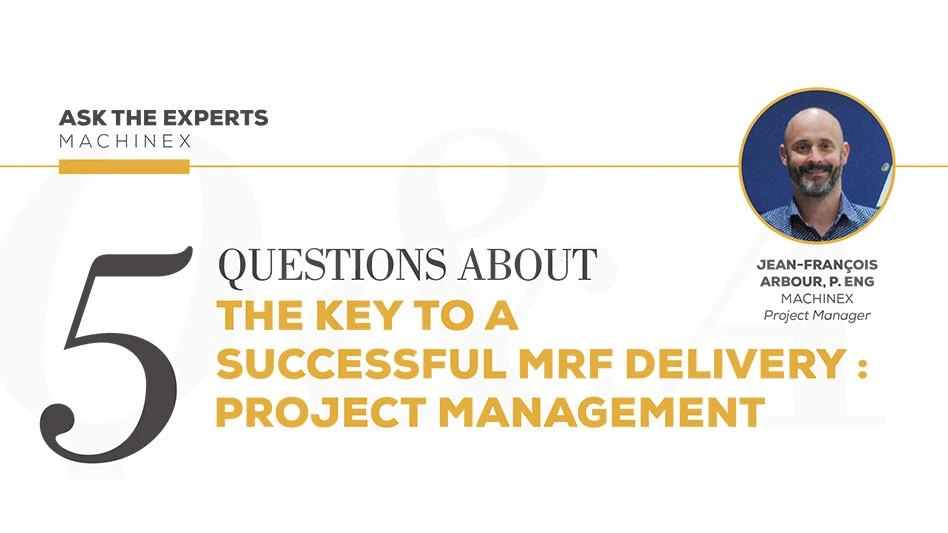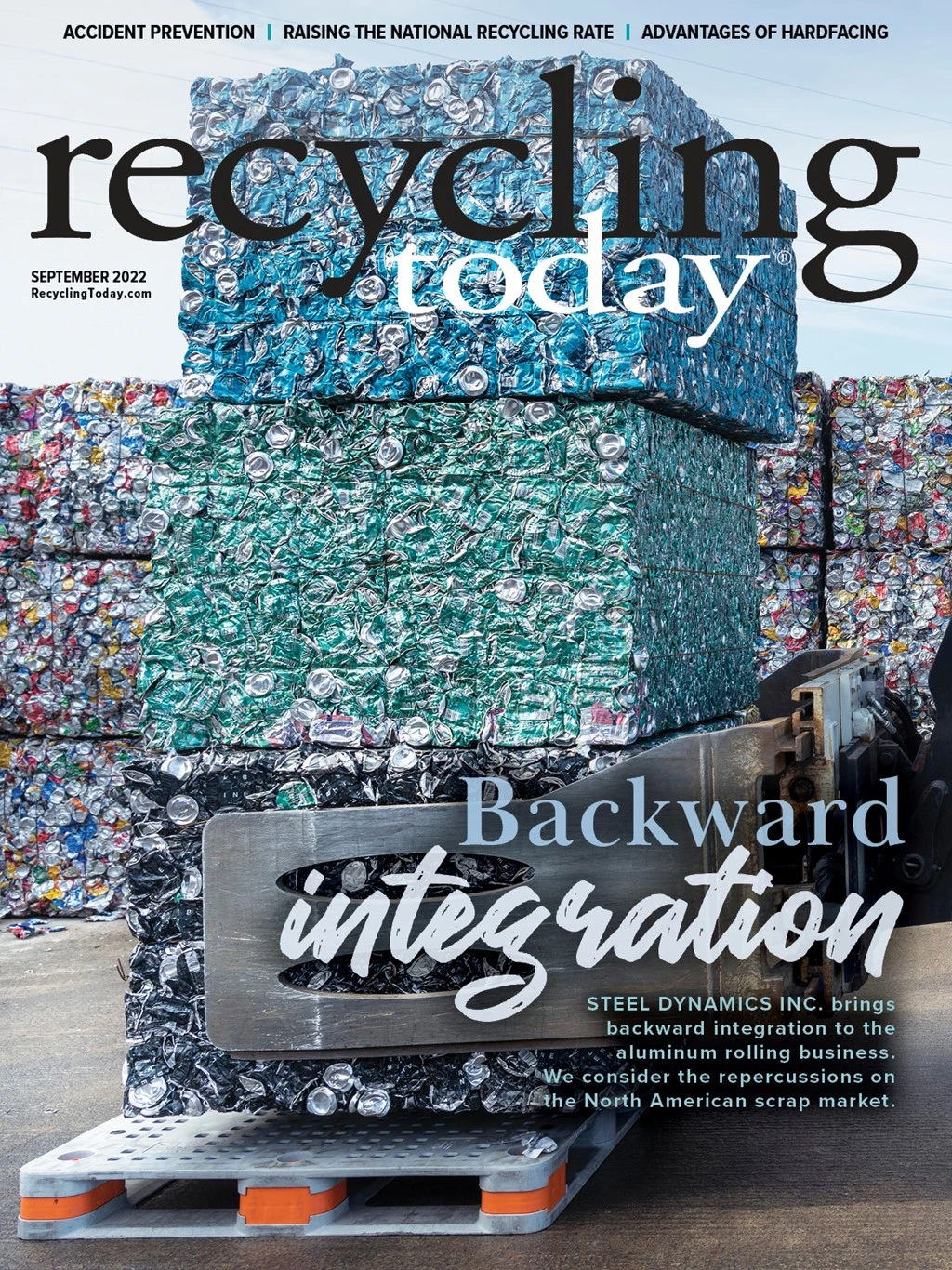

1. What is the role of a project manager?

Project Manager
A project manager (PM) essentially is a facilitator for both internal and external stakeholders of a project. PMs provide a form of accompaniment and become the point of reference, which is crucial for the internal Machinex team of specialists as multiple departments are involved and require guidance for optimal efficiency.
There are many steps to be followed, from research and development (R&D) to detailed engineering and manufacturing, install, startup, training and more, and the PM is responsible for making sure nothing holds back the flow of that process.
2. What is the scope of the project management umbrella?
At Machinex, a PM is assigned to every project. The journey begins when the project is sold until the material recovery facility (MRF) is running—even then we can assist the client until they feel comfortable with their operation.
We have developed a process based on Project Management Institute (PMI) best practices. The sales director first briefs the PM and other department coordinators (engineering, electrical, install, startup, buy-resale, R&D, etc.) on the history of the project and the client.
Several weeks before the install, we discuss the micro installation schedule to ensure the structure has been designed to ease the install process. We also keep the client in the loop, presenting the schedule to make sure they are ready.
Every week, the PM meets with stakeholders and clients to follow up on the project schedule and resolve any possible issues. The PM is responsible for weekly meetings when the install and startup teams are on-site until the last client requirements have been fulfilled and training completed.
3. Do you adapt project management strategies according to size or complexity of the projects?
Yes, we categorize each project, whether it is a retrofit, the addition of small equipment, a greenfield project or other type. For each of those categories, we have adapted a project management process that guides the unfolding of each step. Among the key differences are the paces of the schedule.
4. How instrumental is project management when delivering a MRF?
Machinex has refined its process to develop department specialists, which is key to successful project delivery since there always is a specialist to provide accurate information to quickly solve any issue.
No one builds MRFs on a regular basis except Machinex, which completes numerous projects each year and knows every step of the process, guiding the client through the process while providing any necessary assistance and suggestions for improvement.
Customers can rely on our expertise and experience to prevent complications, taking away the weight such a major investment can create.
5. What is the step that requires the most preparation to ensure the project is a success?
The planning at the beginning of the process becomes the foundation that guides every next step. The project kickoff and bringing all of the specialists from every department together are essential to optimize communication among the stakeholders throughout the project.
We continually improve our PM process by sharing hurdles and successes, creating a bank of knowledge from projects we have completed from around the world.
Get curated news on YOUR industry.
Enter your email to receive our newsletters.
Explore the September 2022 Issue
Check out more from this issue and find your next story to read.
Latest from Recycling Today
- European project yields recycled-content ABS
- ICM to host co-located events in Shanghai
- Astera runs into NIMBY concerns in Colorado
- ReMA opposes European efforts seeking export restrictions for recyclables
- Fresh Perspective: Raj Bagaria
- Saica announces plans for second US site
- Update: Novelis produces first aluminum coil made fully from recycled end-of-life automotive scrap
- Aimplas doubles online course offerings






